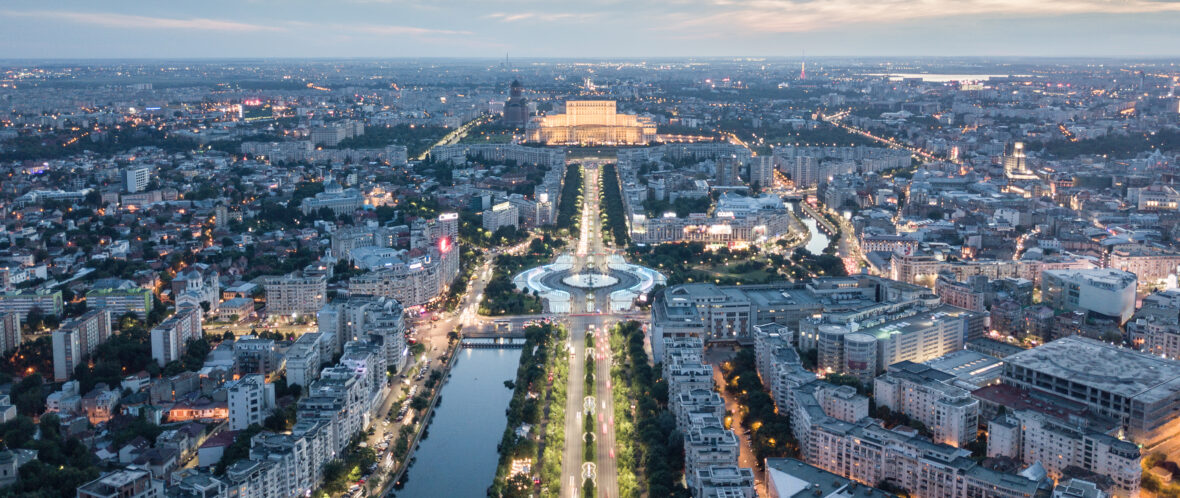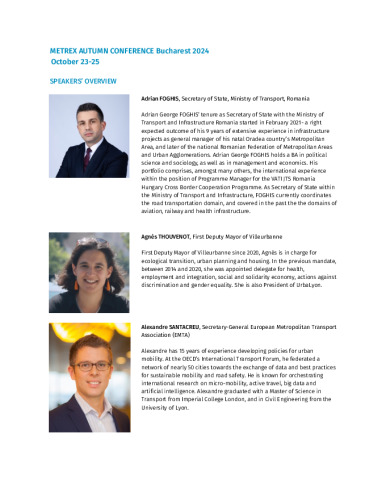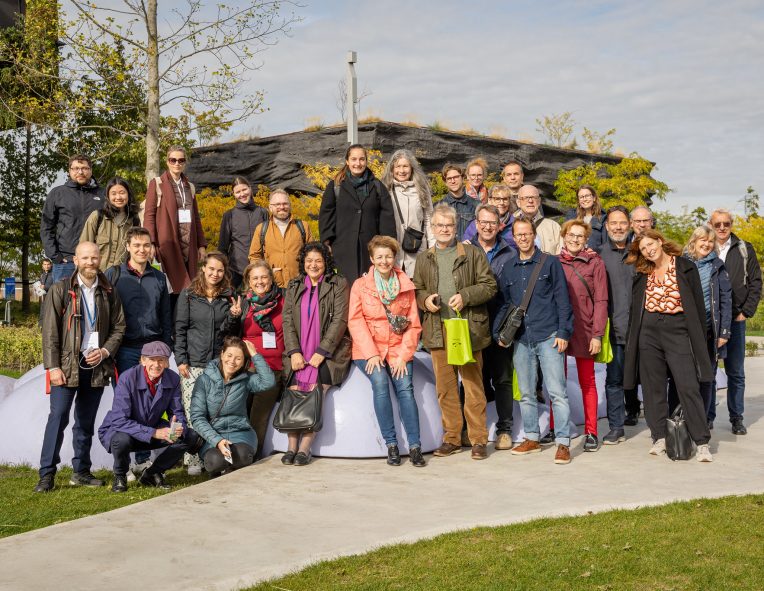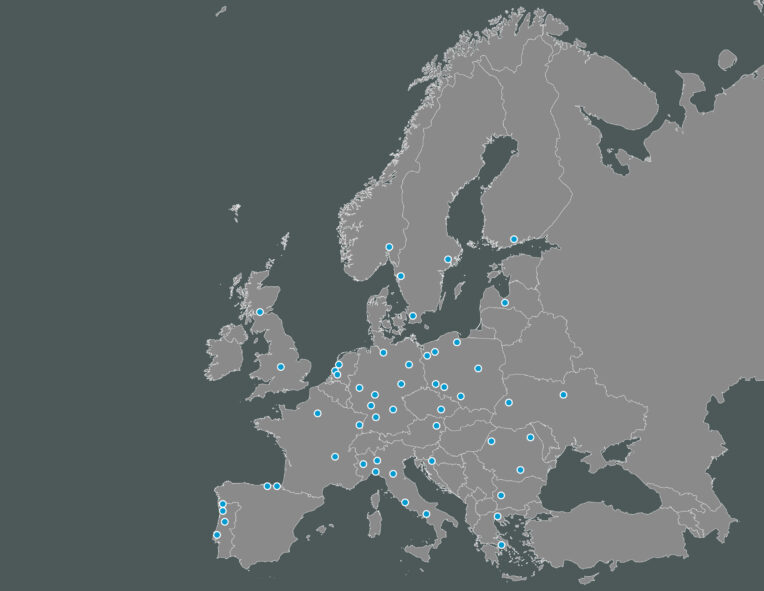The Report from the METREX Autumn 2024 Conference in Bucharest is now out!
Download the report here (PDF)
Bucharest Autumn Conference, October 2024
The appointment of the fall 2024 aimed to integrate several key components to support our members in building a robust organizational framework capable of addressing new spatial planning challenges with:
- Introduction to the Romanian context: Understanding regional specifics and contextual challenges.
- Thematic and Parallel Workshop Sessions: Offering opportunities for learning, mirroring, and reflecting on organisational strategies to address spatial planning issues.
- Strategic Integration: Combining these elements to ensure we are not only prepared for the future but also proactive in shaping new policy statements towards EU institutions.
- Searching for political support in formulating a European Metropolitan Agenda.
The program included only a few plenary session presentations and many hands-on, parallel workshops delving into a wide spectrum of themes :
Workshop 1: Bankability of Green Policies
The bankability of green policies in Europe is enhanced by a strong regulatory framework, innovative financial instruments, and growing market maturity. However, challenges remain, particularly in emerging sectors and regions, requiring continued effort to create an enabling environment for sustainable investment. The success of Europe’s green transition will depend on the ability to mobilize private capital on a scale, which in turn hinges on the continued development of bankable green projects.
Workshop 2: Mobility:strengthen metropolitan cooperation
Strengthening metropolitan collaboration in mobility is essential for building more sustainable, efficient, and equitable transportation systems. It requires a concerted effort to align policies, share resources, and engage stakeholders across municipal boundaries. By working together, metropolitan areas can better address the challenges of modern mobility and enhance the overall well-being of their residents.
Workshop 3: No Net Land Take
Achieving net-zero land take in metropolitan regions is a complex but essential goal for sustainable urban development. It requires a multi-faceted approach that includes land recycling, compact urban development, smart zoning, and active community engagement. While challenges remain, the long-term benefits of protecting natural and agricultural lands, promoting sustainable growth, and enhancing urban liveability make the pursuit of net zero land take a critical objective for metropolitan planners and policymakers.
Workshop 4 : Metropolitan Economic Development
Boosting metropolitan economic development requires a strategic approach that leverages the unique strengths of metropolitan areas while addressing their specific challenges. Metropolitan regions are often economic powerhouses, but they also face complex issues such as inequality, infrastructure strain, and environmental concerns. To promote sustained economic growth, a combination of policy interventions, investment in infrastructure, fostering innovation, and ensuring inclusive growth is essential.
Making a direct link to our premises, the outcomes of the event served as a first outline for an updated proposal, the European Metropolitan Agenda, to Members of the European Parliament in Spring 2025, also using the Polish EU Presidency and our METREX Spring Conference.




